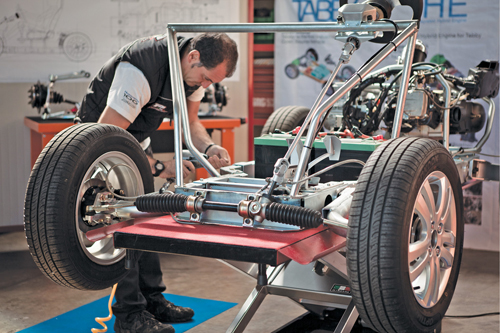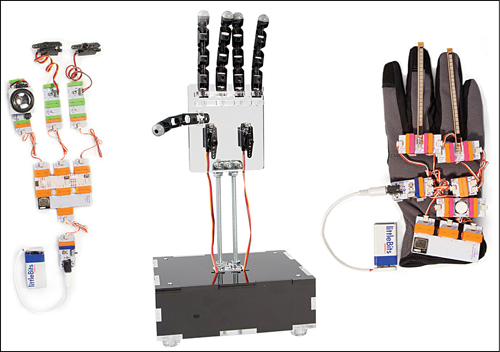Although the World Wide Web (WWW) itself is considered by many as the biggest success of open source (OS), the dependence of OS on the WWW is actually even greater. Imagine how difficult it would be to create, share and collaborate with people across the world without the Web as a backbone? An issue focusing on OS electronics would therefore be quite incomplete if we do not talk about online resources that aid in the development and use of such electronics. Here, we look at some such interesting sites that satiate your curiosity and enthusiasm to build open hardware. However, note that we are not repeating the oft-mentioned and already well-known resources such as Arduino or Raspberry Pi’s official blogs, Make Magazine, and such.

1. How can I get my PCB designs fabbed?
There are several OS tools available on the Web to design printed circuit boards (PCB). However, many often think it is futile to fiddle with designs if they cannot get them fabricated. Now, the Web also makes such facilities available at your doorstep.
During his I-Day speech, our Prime Minister insisted on manufacturing in India. He invited people to make in India, sell anywhere in the world. So, when it comes to your PCBs too, made in India ought to be the first choice to explore. PCB Power (www.pcbpower.com) is an Indian firm specialising in design and manufacture of PCBs. While they supply to customers in hi-fi verticals like aviation, defence, railways, industrial electronics, etc, what sets them apart from others is that they also print small orders for learners and enthusiasts! Ordering is quite easy and unambiguous too. First, enter basic specifications like size, layers, delivery period and quantity, and get a quick online quote. If you are okay with the rates, you can place an order by uploading the Gerber files and fabrication parameters.
Another choice is German manufacturer Fritzing Fab (http://fab.fritzing.org/fritzing-fab), which manufactures in Berlin and supplies to any place in the world. Fritzing Fab consolidates orders and fabricates them together once a week, which makes it possible to process even single-PCB orders at a reasonably low cost. Apart from fabrication services, Fritzing also offers loads of learning materials, and a freely downloadable OS software that helps you create, document and share OS electronics.
OSH Park (https://oshpark.com/) is a another option, where PCB orders from the community are consolidated, manufactured in the USA, and shipped for free to anywhere in the world. Again, this is an affordable option, and OSH Park ships promptly within 12 to 15 days of ordering. To get an idea, they charge US$ 5 per square inch for three copies of two-layer boards, and US$ 10 per square inch for three copies of four-layer boards.
2. How do I make my own vehicle?
You might not intend to really compete with the Tatas and Toyotas of this world, but have you ever wished that you could build your own vehicle, for kicks or due to any special needs? Well, OSVehicle (http://www.osvehicle.com) or OSV is an upcoming open source vehicle platform that offers a way out. Their first prototype, Tabby, was showcased at last year’s Maker Faire. Tabby is a versatile, universal chassis on which you can build a variety of vehicles ranging from two, three or four seaters to even cargo carriers, capable of travelling up to 80 kilometres per hour. With their starter kit, you can supposedly assemble Tabby in less than an hour! Tabby is certified as road-safe and also complies with environmental norms. OSV technology is compatible with all types of engines—electric, hybrid and internal combustion. All the plans and blueprints can be downloaded from their website and modified at will. The forum is quite active and can be a medium to share your ideas, solve your problems and collaborate on new projects. OSVehicle, like most successful OS businesses, offers two modes to build your vehicle—do it yourself, or do it together. The former means downloading all the designs and doing it all yourself, while the latter includes paid services and support.
You can also check out OScar (http://www.theoscarproject.org/), another project aiming to reinvent mobility using OS.







